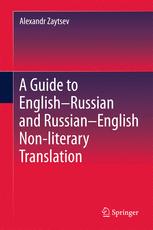

Most ebook files are in PDF format, so you can easily read them using various software such as Foxit Reader or directly on the Google Chrome browser.
Some ebook files are released by publishers in other formats such as .awz, .mobi, .epub, .fb2, etc. You may need to install specific software to read these formats on mobile/PC, such as Calibre.
Please read the tutorial at this link: https://ebookbell.com/faq
We offer FREE conversion to the popular formats you request; however, this may take some time. Therefore, right after payment, please email us, and we will try to provide the service as quickly as possible.
For some exceptional file formats or broken links (if any), please refrain from opening any disputes. Instead, email us first, and we will try to assist within a maximum of 6 hours.
EbookBell Team

5.0
58 reviewsLying at the intersection of translatology, cognitive science and linguistics, this brief provides a comprehensive framework for studying, investigating and teaching English-Russian/Russian-English non-literary translation. It provides a holistic perspective on the process of non-literary translation, illustrating each of its steps with carefully analyzed real-life examples. Readers will learn how to choose and process multidimensional attention units in original texts by activating different types of knowledge, as well as how to effectively devise target-language matches for them using various translation techniques. It is rounded out with handy and feasible recommendations on the structure and content of an undergraduate course in translation. The abundance of examples makes it suitable not only for use in the classroom, but also for independent study.